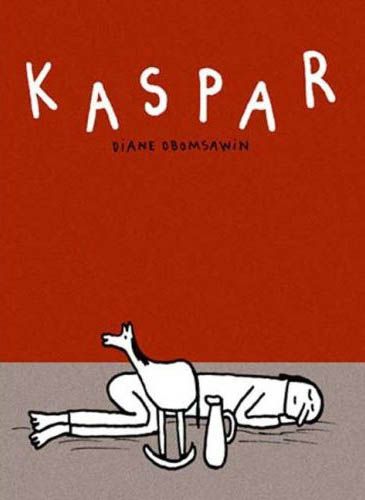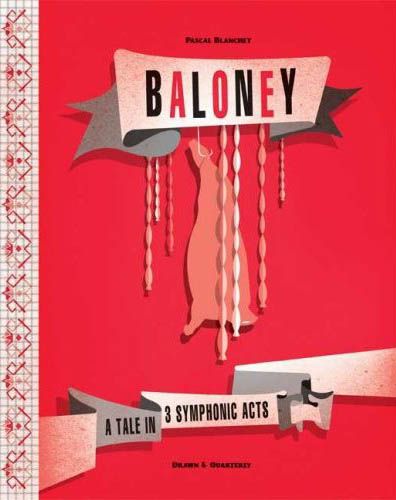Drawn and Quarterly recently released three small, slim graphic novels, all dealing with similar themes of loss, death and the human experience, though they vary widely in approach.
by Pascal Girard
Drawn and Quarterly, 64 pages, $9.95.
Aching with regret and longing, Nicolas is Girard's chronicle of personal grief following the death of his younger brother. Rather than delve into any sort of lengthy or more traditional narrative, he chooses instead to lay out his autobiographical story in stark, short vignettes, utilizing a crisp, minimalist style that's completely devoid of background or extemporaneous detail.
Overall it's a smart choice and it really helps the book feel intimate and personal. As Girard moves from childhood to adulthood he attempts to give a rounded portrait of his behavior and doesn't attempt to portray himself as a wounded angel. He's selfish and self-absorbed and not necessarily above using his tragic story to help him get attention, particularly from women. More significantly, however, is how his inner thoughts and behavior ring true for anyone who had to attend a family funeral as a young child.
After finishing the book, the ugly, cynical part of me wanted to say, "Well, this book isn't really about Nicolas at all. It's all about you and how his death affected you. It's incredibly self-centered. You might as well have called it Pascal."
But that's a really unfair attitude to take. I don't know what happens to our loved ones when they pass away, but I'm reasonably certain that they've moved far beyond the cares of this world. It's those of us who remain that have to try to find a way to fill the enormous, deep and lasting emotional void they've left behind. Nicolas chronicles Girard's attempts to do just that with astounding aplomb. It's a tough book to read at times and I doubt you can get through the end without tearing up a little, but it's definitely worth your time.
Kaspar
by Diane Obomsawin
Drawn and Quarterly, 96 pages, $12.95.
Obomsawin tells the story of Kasper Hauser, a foundling discovered in 19th-century Germany who had barely any ability to read, write or speak, and claimed to have been raised in a darkened cell until his mid-teens. He quickly became the toast of Bavaria and attracted a flock of fascinated scholars, noblemen and other folk who attempted to educate and care for him. Rumors circulated at the time that he was really a prince with ties to the House of Baden. Sadly, he died under extremely mysterious circumstances, after being stabbed in a garden.
Obomsawin relies heavily on Kasper's own letters and writings to chronicle her tale, and adopts a minimalist style very similar to Girard's, no doubt in order to better portray Hauser's childlike state of mind.
I'm not sure that was a good choice. There is some debate going at the time and even today as to whether Kaspar's story was true or if he was just an incredibly skilled con-man. It would have added a nice bit of complexity if even a shade of that doubt had been explored here. But even if we accept the idea of Hauser as innocent man-child, I think it might have underscored and emphasized his innocence if the world that encompassed him was more representational.
Then again, maybe not. Kaspar does exactly what it sets out to do, tell a true story in as simple and as direct a fashion as possible. It's not entirely Obomsawin's fault that I was left wanting more.
Baloney
by Pascal Blanchet
Drawn and Quarterly, 80 pages, $16.95.
This is Blanchet's second book for D&Q, his first being 2007's tale of the rise and fall of a small Canadian community, White Rapids. Baloney is a bit more ambitious than that book, though it's not nearly as good.
Little of the fault lies with the art work. Drawing on a number of mid-20th century sources, the work of most notably Jim Flora amd the UPA animation studio, Blanchet's illustrations use line and shadow to stunning effect, creating a world that is all 45 degree angles, silhouettes and skewed arrows.
More illustrated fairy tale than comic, Baloney tells the story of a miserable butcher, his beautiful but disabled daughter, her bookish swain and the town they live in ruled by a cartoonishly evil duke. Plot-wise it reminded me a good deal of some of James Thurber's children's tales, though this work is decidedly for adults, mainly because it ends on such a dark and depressing note.
And that's a big part of the problem with Baloney. It's designs and characters are so over the top, so ridiculous that it's hard to really care about them or their plight. The book veers in tone between slapstick and tragedy and never really manages to find the right note, a perhaps ironic criticism considering how Blanchet attempts to incorporate music into the reading experience (there's even a playlist in the back of the book).
Baloney is not without its merits, most of them artistic, but because it fails to create an immersible world (unlike Rapids, where the town felt recognizable), it fails to engage the reader as well.




